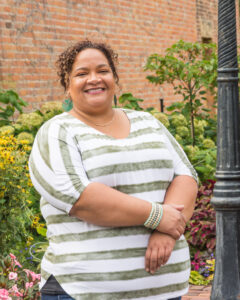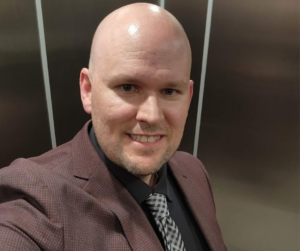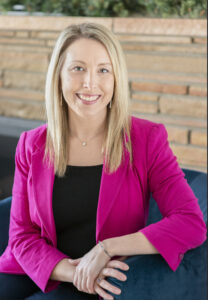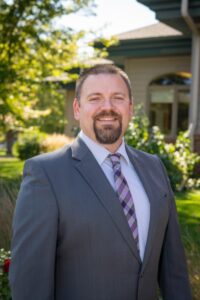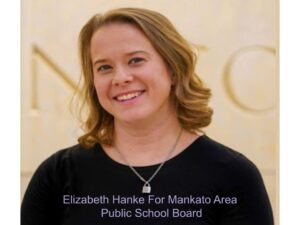
1. Why should voters elect you to serve the position you seek?
I’m running for the Mankato Area School Board to give back to a community that has profoundly impacted my family. As a business owner, mother, and host of exchange students, I’ve gained insights into various educational systems, which I hope to bring to our local schools. My volunteer work with mentorship programs and Junior Achievement, combined with my upbringing with a mother who taught adjudicated youth, has deepened my commitment to supporting all students. I believe my diverse experiences and dedication to education make me a strong candidate for the School Board. Together, we can build a more effective educational environment.
2. What are the key issues facing the district you seek to represent, and how would you address them if elected?
The key issues facing our district include declining student enrollment, uneven academic recovery among schools, a lack of transparency, and financial challenges. Over the past
decade, our district’s test scores in Math, Reading, and Science have dropped, affecting students’ readiness for the future and our local workforce development. For instance, district-wide Math proficiency has decreased from 71.3% in 2014 to 52.1% in 2024, Reading proficiency has fallen from 64.8% to 55.1%, and Science proficiency has declined from 44.1% to 40.5% over the same period. Additionally, our district has lost over 775 K-12 students since 2019, with over a hundred students lost between September 2023 (8,037 students) and September 2024 (7,897 students, as reported by the Free Press), resulting in a reduction in revenue.
We are also facing an uneven recovery in academic performance between schools. While some schools have shown improvements, others continue to struggle. For example, Mankato West has seen Math proficiency fluctuate from 49.6% in 2021 to 48.6% in 2024, whereas Mankato East has experienced a more pronounced decline, with Math proficiency dropping from 33.1% in 2021 to just 30.2% in 2024. A similar trend is evident in Reading and Science scores: Mankato West’s Reading proficiency has improved from 66.3% in 2021 to 70.7% in 2024, while Mankato East’s scores have decreased from 61.6% to 57.9% during the same period.
To address these challenges, we must focus on equipping our students for a future increasingly centered around STEM. This will require a dedicated effort to review our current policies, reallocate resources strategically, and ensure every student has the opportunity to succeed, regardless of the school they attend.
3. In your view, what is the role of the body you seek in supporting business vitality and economic development?
The school board plays a crucial role in supporting business vitality and economic development by ensuring that our students graduate with the necessary skills, discipline, and resilience to succeed in today’s job market. As a business owner, I am concerned that some of our students are not graduating with the skills needed to become productive and happy adults. This directly affects our ability to attract and retain businesses that depend on a reliable, skilled workforce.
It is also important to recognize that our district has some strong programs that offer tremendous value to our students and the community. Our district provides valuable internship opportunities and skills classes, bridging the gap between education and employment. We should continue to invest in and expand these opportunities to align with our local economy’s needs.
4. What experience do you have dealing with complex budgets? How will you approach reviewing a budget, and what improvements would you recommend to improve fiscal responsibility?
I have experience managing budgets as a business owner. When reviewing a complex budget, I would start by identifying key areas that directly impact student learning, safety, and teacher retention. Given the district’s financial challenges due to declining enrollment, I would scrutinize spending to ensure it is focused on areas that yield measurable benefits for students.
I would recommend eliminating unnecessary expenses, redundant meeting and ensuring administrative salary increases are proportionate to those of teachers and directly related to their performance. Additionally, I would push for a more transparent budgeting process that involves community input, ensuring taxpayers understand how their money is being used and feel confident that it is spent wisely. This transparency is crucial, as many of the district’s issues stem from a lack of trust and communication.
5. How will you work with other elected officials to build consensus?
Building consensus requires open communication, transparency, and a genuine commitment to finding common ground. Right now, our district suffers from a lack of trust and information silos that prevent productive dialogue. I believe that most of our community wants the same thing: a district that supports all our students and staff.
If we continue to operate in these silos, I will not be able to govern effectively as a school board member. I aim to lead discussions that encourage teachers to advocate for their students and foster an environment where all voices are heard. I also plan to address community concerns by engaging with legislators who create state laws.
The first step toward effective governance is improving how we share information and communicate. Moving forward requires greater transparency, open communication, and a commitment to honest conversations. Our community deserves leaders willing to confront challenges head-on and collaborate on solutions that benefit all students.





